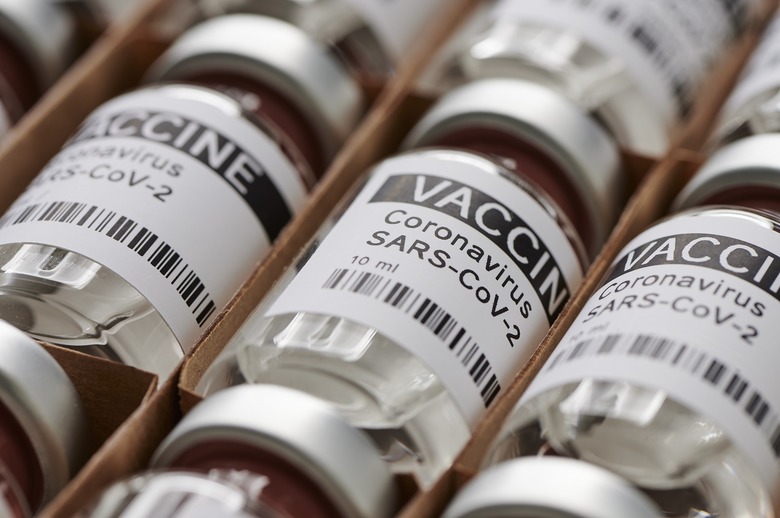China Doesn't Know If Its Coronavirus Vaccines Work, But It Wants Other Countries To Use Them
- Coronavirus vaccine updates from China indicate that several of the experimental drugs that are in the final stages of testing have received approval for emergency use in the country.
- Drugs from Sinovac, China National Biotec Group, and CanSino are already being used under emergency use approvals (EUA) in the country.
- CanSino is also negotiating EUAs with other countries in the hope it can expand its reach even before Phase 3 results are finalized.
The race for safe and effective novel coronavirus vaccines has taken a strange turn in the past few weeks. Russia hinted that it would approve its mysterious vaccine candidate for public use before Phase 3 trials were complete. It then proceeded to announce its vaccine is safe and effective to the dismay of researchers around the world, who cautioned that there was no way Russia would have been able to prove the safety or effectiveness of the vaccine in such a short period of time. The Russians have not shared any research on the first phases of the trial, as is customary for such studies, but they are starting to distribute the vaccine widely regardless.
Separately, more reports indicated that China had started using its more advanced vaccine candidates on certain categories of people. The difference between Russia and China is that several Chinese companies have produced peer-reviewed papers that show the drugs worked in the early phases. At the same time, word got out that Trump may be pressuring FDA officials to issue an EUA to one of the advanced drugs that are in Phase 3 trials in the US and other countries before the November election. Health officials, including Dr. Anthony Fauci, warned that going down that road might hinder the entire COVID-19 vaccine development process.
This brings us to the newest reports about COVID-19 vaccine use before studies are completed, with China taking center stage. The country has been using some of its more advanced drugs for a few weeks, and it's negotiating EUA approvals with other countries that would allow it to ship those drugs to new markets.
The first report comes from Reuters, which says Sinovac's CoronaVac received its EUA in July as a part of China's program to vaccinate high-risk groups. The same report says that the China National Biotec Group (CNBG) posted on WeChat on Sunday that it obtained its own EUA for one of its two COVID-19 vaccine candidates that are in Phase 3 clinical trials, without specifying which drug got the regulatory go-ahead.
The experimental drugs were being given to at-risk groups as of last month, a health official said in an interview that aired on state media. Authorities are considering "modestly" expanding the emergency use program to prevent outbreaks in the autumn and winter.
Even earlier than that, reports came out of China that employees at state firms who were traveling overseas were allowed to take one of the two CNBG vaccines. Reuters also notes that China's military approved the use of CanSino's vaccine candidate. It turns out that the same CanSino is in talks with governments around the world to expedite emergency use approvals in those countries even before the Phase 3 results are in. CanSino did previously disclose results for its vaccine development efforts.
CanSino happens to be the first Chinese company to have started a vaccine trial in March, and the drug was developed in cooperation with the Chinese military. The Wall Street Journal reports that the company already disclosed in a filing with the Hong Kong stock exchange that the Chinese army approved the use of vaccine before the end of the trial. Thousands of soldiers have already been inoculated with the drug.
The company is now looking to expand its reach to other countries even though the final data isn't ready. As with other drugs, Phase 3 trials will not necessarily yield positive results for all the vaccine candidates that reach it.
CanSino's senior vice president for international business Pierre Morgon told The Journal that getting the vaccine out to millions of people before the trials are complete will broaden the base of knowledge about the drug's safety and effectiveness.
"It helps to build the safety database and certainly build the confidence in the fact that the vaccine is safe. If, in the meantime, if it is demonstrated as being effective in the Phase 3 trials, then it might be an accelerator for future contracts for vaccine supply," he said. But what if Phase 3 doesn't confirm the results from the first two phases?
Any emergency use programs would incorporate only people who are most at risk of catching COVID-19, including medical personnel, the army, and the police. Even so, some of the people who are immunized might get the wrong idea that they're protected against the illness when that might not be so. Even if Phase 3 delivers the results everyone wants, it's unlikely the vaccine will be 100% effective in the first year. People who are vaccinated will need to know precisely what the risks are.
CanSino's studies on the previous stages of the trial did prove that the vaccine induces an immune response without eliciting severe side-effects, so at least we have that.
CanSino's executive wouldn't say what countries are considering using the vaccine, but the list includes Pakistan and some countries in Latin America. None of those countries agreed to give CanSino's drug an EUA. CanSino is also conducting Phase 3 trials in Russia, Pakistan, and Saudi Arabia, and is in talks for trials in Brazil and Mexico.
A large country might buy one or two million doses from CanSino under the EUA plans. It's unclear how much this vaccine candidate would cost.
